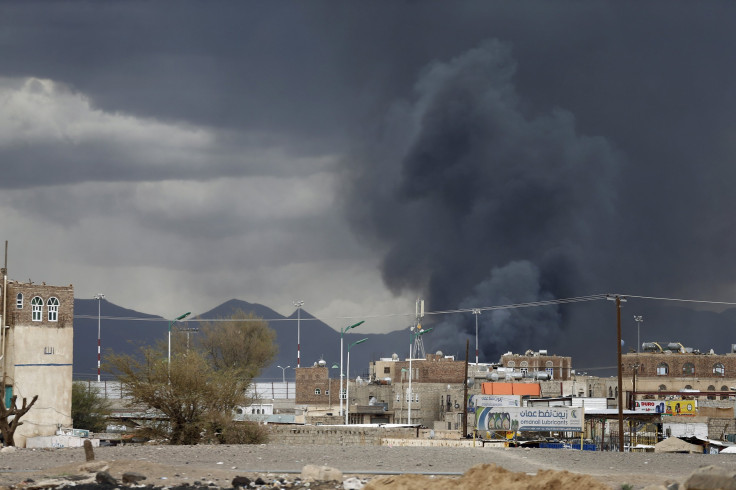Bombs Strike Sanaa As Ceasefire Set To Begin In Yemen

ISTANBUL -- Airstrikes hit targets in Yemen's capital of Sanaa Tuesday morning just before a five-day ceasefire was set to begin between the Houthi rebels, who are now in control of much of the beleaguered country, and the Saudi-led coalition. The bombardment of the capital raises questions about whether the ceasefire will hold in the coming hours.
The ceasefire is set to begin at 11 p.m. to allow humanitarian organizations to enter the country and deliver food and medical supplies. A U.N. refugee agency shipment of aid arrived by sea in the Yemen port of Hodeida Tuesday during the bombing in Sanaa and delivered blankets, sleeping mats and kitchen utensils for 60,000 people, the aid group said Tuesday.
Sharaf Luqman, the spokesman for Yemen’s rebel-controlled military, said Sunday that the ceasefire had been approved to "open the gate for humanitarian aid." He warned that any group that broke the ceasefire truce would be met with a military response, the state Saba news agency reported.
The Houthi rebels accepted the ceasefire deal proposed by the foreign ministers of the Gulf Cooperation Council countries and U.S. Secretary of State John Kerry on Sunday. Saudi Foreign Minister Adel al-Jubeir and Kerry originally proposed the plan last week after a meeting in Riyadh.
Humanitarian organizations have for weeks called on both sides to scale back fighting to allow for the delivery of supplies.
Reuters reported Tuesday that three airstrikes hit a base for army units loyal to the Houthis in the north of Sanaa and the Saudi-led coalition bombed Houthi army targets in the southern port of Aden. On Monday, local armed groups exchanged heavy artillery fire on the border with the Houthi rebels.
I asked a friend in Yemen what she thought of the ceasefire. She sent me this view from her window. pic.twitter.com/oj3rZrmPcG
— Kareem Shaheen (@kshaheen) May 11, 2015On Tuesday, the International Organization for Migration (IOM) said in a briefing to reporters that Yemeni civilians have been fleeing to the Horn of Africa over recent weeks as the conflict escalated. More than 14,500 people have been registered upon their arrival. About 9,700 have arrived in Djibouti and more than 4,800 have arrived in Somalia, according to IOM.
© Copyright IBTimes 2024. All rights reserved.




















